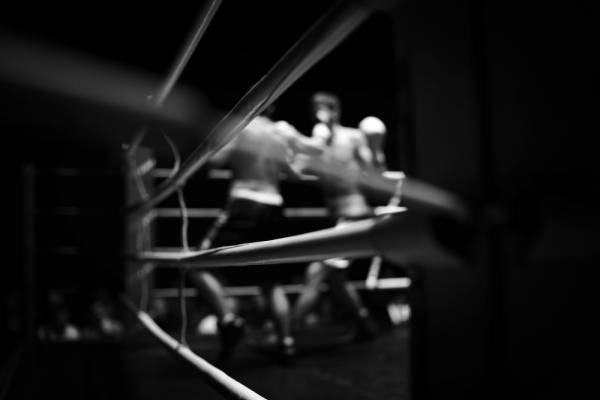I was sitting in acting class the other night and we were talking about technique. My acting teacher was talking about her recent foray into CrossFit and drawing a parallel to work as an actor. She was talking about having a hard time getting some of the movements and that it wouldn’t work to merely memorize them. Rather, in order for her to find success in the patterns she would have to find it in her body through repetition and failure. One can study a discipline, memorize steps, and break down technical elements, but after a while one needs to simply trust what he or she knows, then forget it, and simply do it. Nike summed it up succinctly with “Just do it.”
An actor, interestingly enough, studies many of the same concepts as a martial artist. After all, they are both artists. Both learn to feel their feet on the floor, to connect with their breath, and to move with efficiency of ease without any tension. The goal is never a wasted moment or a shallow breath, or acting without intention or purpose.
There are many technical drills and practices used to find this presence, but ultimately it’s a skill developed through repetition and feel. Like a dancer, a martial artist as well as a true athlete, works to find rhythm by feel and intuition. Ultimately, this is done by having the awareness of being truly present – relaxing the body as well as the mind. You can see it in an elite fighter, you see it in a world-class athlete or dancer, and yes, you also see it in an actor. In Malcolm Gladwell’s book Blink, he asserts that our intuitions almost always tell us the correct answer, but many of us block that intuition. We block intuition through fear, adrenaline, or the desire for a certain outcome. But that intuition is what allows the actor to find truth and the fighter to make adjustments in a fight for his life. We have to learn to trust.
Fair enough, if practice doesn’t necessarily make perfect, and technique isn’t always the key to our success, then what is the answer? Failure is. Failure should be synonymous with growth and opportunity if we are keyed into it and trusting that intuition. In making mistakes we find out what’s truthful and authentic, what sticks and works. My boxing coach John used to have me practice completely random footwork drills. Switching stances, tripping over my feet, throwing punches walking and running backwards, and so on. By learning to punch being off balance (which is not technically correct, of course) I became much sharper in the process. I had to do it incorrectly to get sharper in doing it correctly.
In fitness if one wants to improve their balance one mostly trains by being off balance. Actors are often encouraged to try things in rehearsal like acting much bigger and more dramatic than normal to see how far they can go and where it feels natural. Even actors have that natural built-in human tendency to play it safe and play by life’s rules so to speak. But when we step out of our comfort zones and find that courage and willingness to fail, that is where we find the openings.
I have something I try to communicate in training and coaching, which is to learn and practice until one approaches perfection, and then forget it and try something different. The change is where growth occurs and in the martial arts and boxing this is especially applicable because opponents study our patterns while perfecting their own. Here is the human paradox: finding perfection and yet being willing to change and fail in doing so. Making adjustments on the fly means learning from failure. Being able to adapt when things do not go according to plan. In truth, there is no perfection, only change. In our physical bodies we are all aging, all champions ultimately lose. We cannot all get bigger, faster, and stronger in the long run, but we can all change. In doing so, we can all grow.
 We watch and admire great athletes, fighters, and artists because of the stakes. They are putting everything on the line for finding a moment of perfection and in doing so they must be willing to fail. Al Pacino talks about the theater actor being out on the tightrope. With a live audience there is no take two, or do-over. That actor must be willing to find truth in the moment – he or she cannot be thinking about the next line. It’s not truthful if it’s calculated.
We watch and admire great athletes, fighters, and artists because of the stakes. They are putting everything on the line for finding a moment of perfection and in doing so they must be willing to fail. Al Pacino talks about the theater actor being out on the tightrope. With a live audience there is no take two, or do-over. That actor must be willing to find truth in the moment – he or she cannot be thinking about the next line. It’s not truthful if it’s calculated.
In the same sense a fighter cannot be thinking about his technique and what to do in the heat of battle. There’s no time to think, only to be present. When we find that moment of truly being present we will notice that we have come full circle to a technique that approaches perfection. The combination of repetition and failure is what makes great champions and artists alike, and brings peace of mind to those of us who are just fighting the daily battle against ourselves.
Photos courtesy of Shutterstock.






